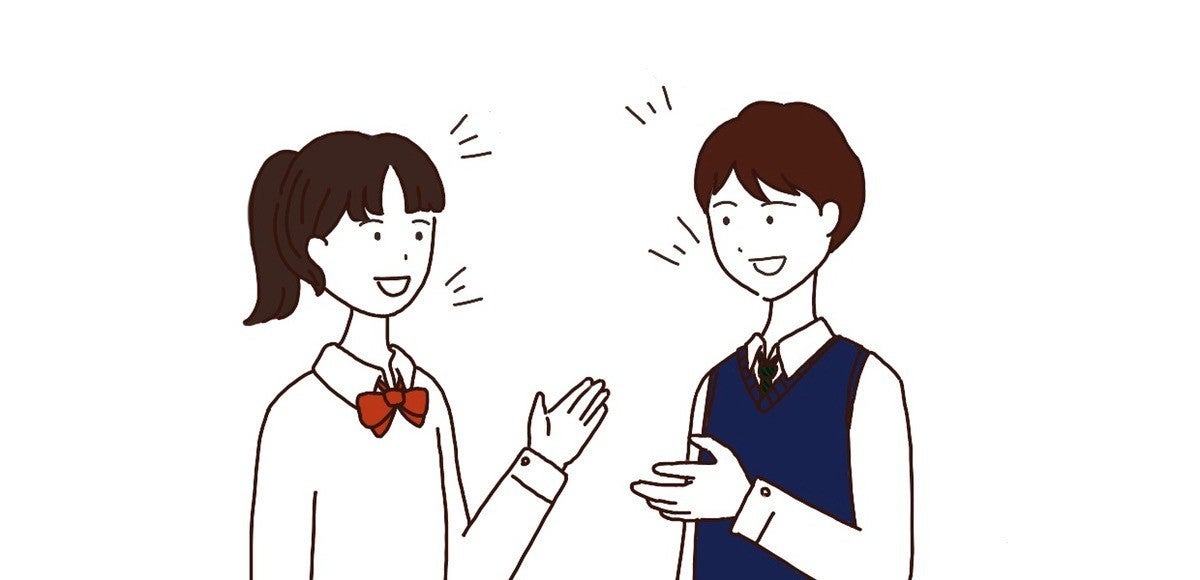中・高 Week 15-2: Achieving Goals 目標の実現(後)
今回は「目標の実現」をトピックにした展開例を紹介しています。前回は入学時に設定した目標に関してのやりとりを紹介しました。今回は、前回のやりとりに続けるかたちで、将来の「夢」についてやりとりします。
中・高 Week 15-1: Achieving Goals 目標の実現(前)
【展開例】 太字部分の質問は、ペアでお互いに質問させます。
T: We have talked about your goals and means, the way to achieve the goals. Now, let’s talk about your dreams. You must have had a lot of dreams when you were younger. Have you ever made your dreams come true?
– Have you ever made your dreams come true?
T: S1, have you ever made your dreams come true?
S1: Yes, I have. When I was ten years old, my dream was to see my favorite professional baseball player. I met him in my school, when he and his teammates visited our school.
T: Wow, that’s great. Why did they visit your school?
S1: I don’t know. The players of the team often visit elementary schools. One of my friends met his favorite player in his school, too.
T: Has your partner made his dream come true.
S1: Yes, he has. His dream was to visit Ueda Castle Remains. He visited there, when he was eleven years old. He made his dream come true.
T: Cool.
生徒にスピーチをさせると多くが「自分の夢」について語ります。しかしながら、「夢を叶える」という表現がなかなか出てきません。そこで make one’s dream come true の表現を使ってみました。文法的にはやや複雑な構造を持つ表現ですが、やはりコンテクストがはっきりしているので、生徒は問題なく理解してくれるでしょう。このやりとりのなかでこの表現を覚えた生徒は、次にスピーチをするときにこの表現を使うかも知れませんね。
また、このやりとりは、内容的にも生徒が興味を持てるものになっています。誰もが友達がどのような夢を実現したかについて興味を持つでしょう。できれば、多くの生徒を指名してその経験をクラスで共有したいですね。その場合、「英語で積極的にコミュニケーションする」態度を養うためにも、その土台となる雰囲気づくりのためにも、多少時間を犠牲にしても良いと思います。これも、教師が授業中に行う「マネージメント」の一例です。
T: Now, what is your dream? Will you have made the dream come true ten years from now?
– What is your dream? Will you have made your dream come true ten years from now?
T: S2, what is your dream?
S2: My dream is to go abroad to study.
T: Will you have made the dream come true ten years from now?
S2: I hope so. I hope I will have made the dream come true ten years from now.
T: What is your partner’s dream?
S2: Her dream is to become a patissier.
T: Does she love making sweets?
S2: She does.
T: Will she have made her dream come true ten years from now?
S2: She says she will have made her dream come true six years from now.
前回に続けて未来完了を使ったやりとりをしてみました。こうして複数回使ってやりとりをさせると、より定着が促されます。どこかのタイミングで文法事項として学ぶ際にも、このやりとりの経験が生きるでしょう。
前回は、このやりとりに続けて「目標の実現のために今何をすべきか」についてのやりとりをしましたが、今回はそれをせず、これで終わりにします。
これで終わりにするのにはいくつかの理由があります。まず一つ目の理由としては、「夢」の実現のためには複合的な努力が必要になるので、「今何をすべきか」という質問に多くの生徒は簡単には答えられないだろうと予想できることです。「内容」の面でも、「英語」の面でも過剰負荷になってしまいます。二つ目の理由としては、おそらくは「現在の夢」についての質問にもはっきりと答えることができなかった生徒が少なからずいたであろうことです。その生徒たちに「今何をすべきか」を続けて問えば、2回続けてやりとりができないというネガティブな経験をさせてしまいます。やりとりが多くの生徒にネガティブな影響を与えると判断するなら、そのやりとりはやめるべきです。これもまた教師が行う「マネージメント」の一例です。
教師の授業マネージメントは、目的があって初めて可能になります。「積極的にコミュニケーションしようとする態度の養成」を目的とするなら、それを促す活動にはより多くの時間を割き、それを阻害しうる要素は排除しなくてはなりません。目的を明確に意識できていないと、そのような「判断」ができなくなります。常に目的を意識し、目的に合った判断ができるようでありたいものです。
今回は、「目標の実現」を巡ってのやりとりを紹介すると同時に、教師の「マネージャー」としての仕事に注目してみました。先生方も授業中のやりとりを考える際に、「マネージメント」を意識して展開を考えてみてください。



